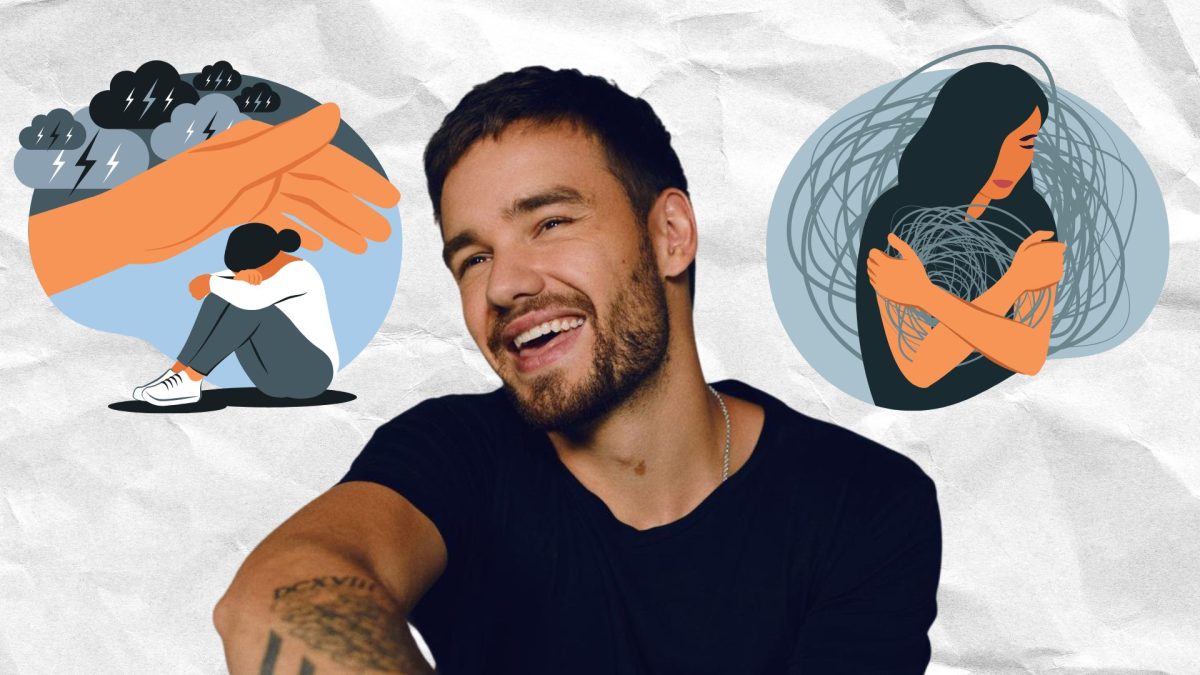Why it’s okay to mourn the death of Liam Payne

Illustration by the Martlet / Photo via Pexels.
It’s been three weeks since the death of One Direction star Liam Payne, and fans from around the world are still reeling from the news.
Payne rose to stardom in the early 2010s, stealing the hearts of young girls alongside his massively popular bandmates. Many One Direction fans are now entering their twenties, and are struggling to cope with the loss of an idol that represents a large part of their childhood.
In the weeks following, social media has been filled with speculation and discourse around the star and his death. Many fled to TikTok to share their feelings and reactions to Payne’s passing, and the boy band topped Spotify’s UK chart in the days after the tragedy.
The Martlet had the honour of speaking with a death doula about grief, and how it looks when the person we’ve lost isn’t someone we knew and lived with, but a celebrity.
Tina Thornton is a death doula in greater Victoria. She describes a death doula as “someone who helps facilitate the dying process.” While she’s not involved in the medical side of dying, Thornton is there to help her clients in all the other aspects of death, whether that’s comfort, support, family communication, or planning.
“Being a death doula isn’t just about holding the hands of someone who’s dying, it’s about the support of the people around them,” she added in her interview with the Martlet, explaining that her job is centered around helping people grieve.
Thornton noted the number of social media posts centered around the supposed blame for Payne’s death. “That’s not where the focus should be,” she said, explaining that “it’s not a death where anyone should be blamed.”
Instead, Thornton encourages people to feel the emotions that come up when they think about Payne. “You’re going to feel the pain. You’re going to feel the anger,” she added.
When it comes to parasocial relationships — an intense, one-sided connection felt by a person towards a celebrity that they’ve never met — people often feel embarrassed about their emotional investment.
“We think that that’s something that’s brand new, but it’s been going on forever,” Thornton said, comparing the reactions to Payne’s death to the public devastation felt when Princess Diana passed away.
“Grief is grief,” she added. “You don’t have to personally be living in that person’s life and in their personal space to miss them.”
People’s reactions on the internet are simply a response to their unique emotions about grief, says Thornton.
“There are certain steps that everybody goes through — the anger, the denial, the sadness — but not everybody goes into those steps at the same time…. This is just people playing out their personal journey,” she said. She explains that there is no right or wrong way to process death.
Thornton’s biggest piece of advice for those struggling with Payne’s death is to connect with others.
“Don’t be afraid to reach out,” she said. “There are other people feeling the same pain.”
“Talk, talk, talk, talk,” Thornton added. “If your mom doesn’t understand, your brother might. If your brother doesn’t understand, the guy sitting at the bus stop on his phone reading all the comments might understand.”
Thornton encourages anyone in need of support to access her website, becalmed.ca, for more resources.
If you or someone you know is struggling, reach out to the UVic Wellness centre for counselling services, or call 1-800-784-2433 for the BC Suicide Prevention and Intervention line, which offers free 24/7 support.







